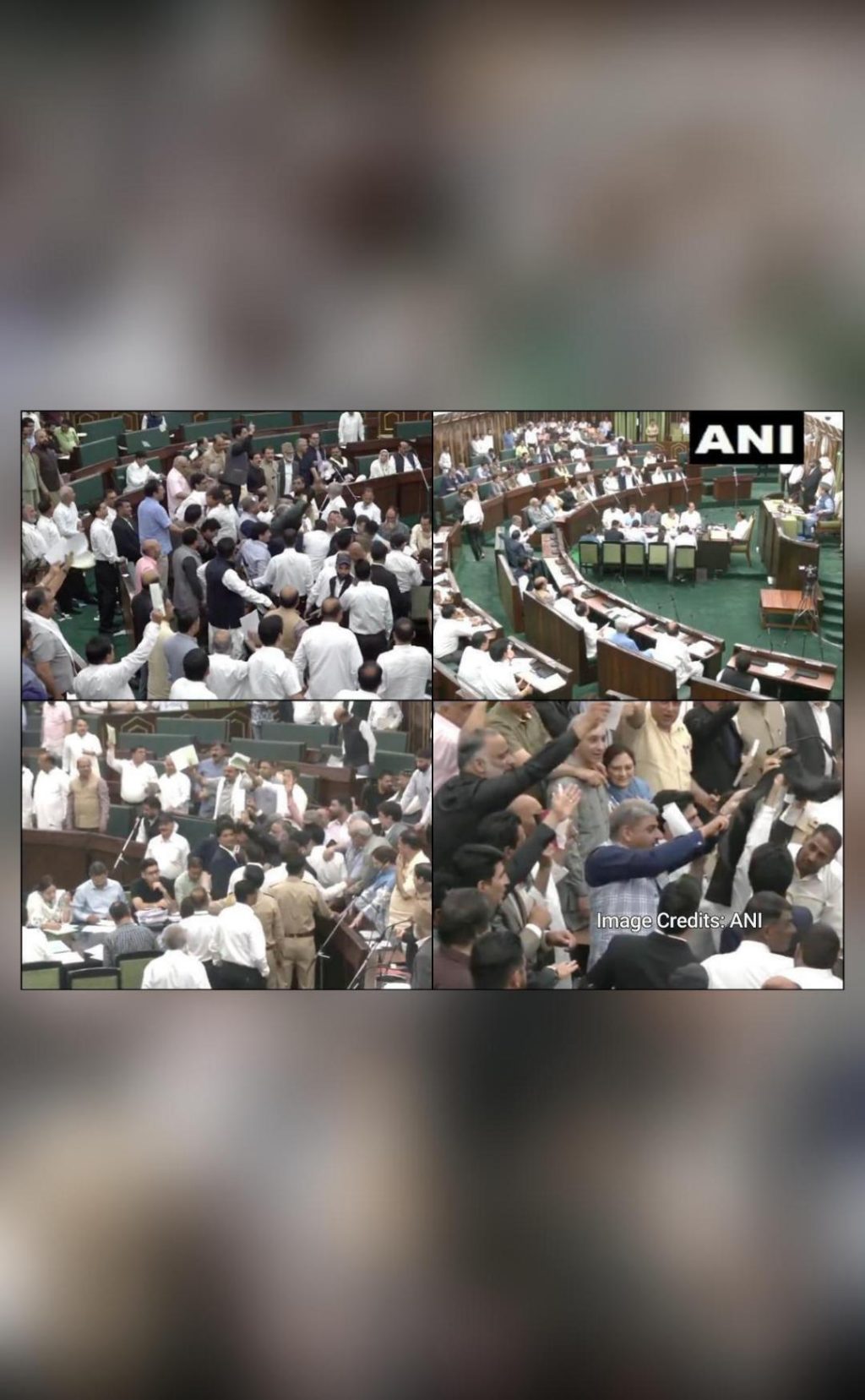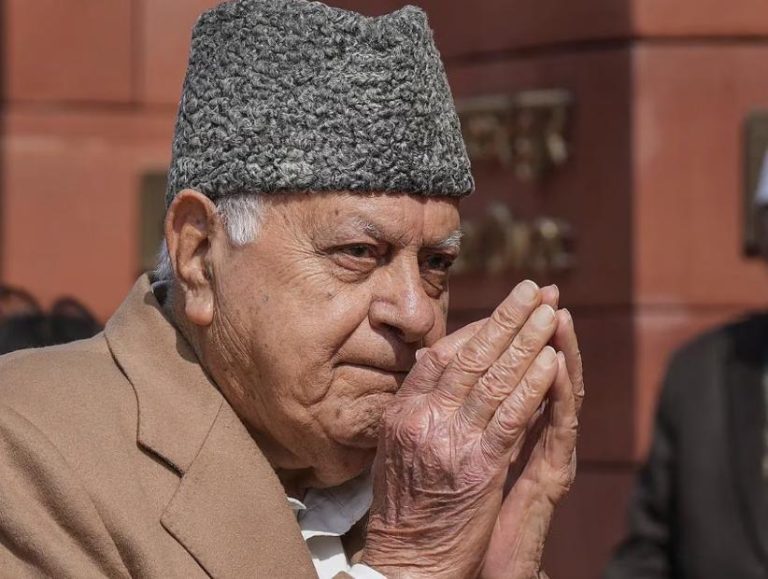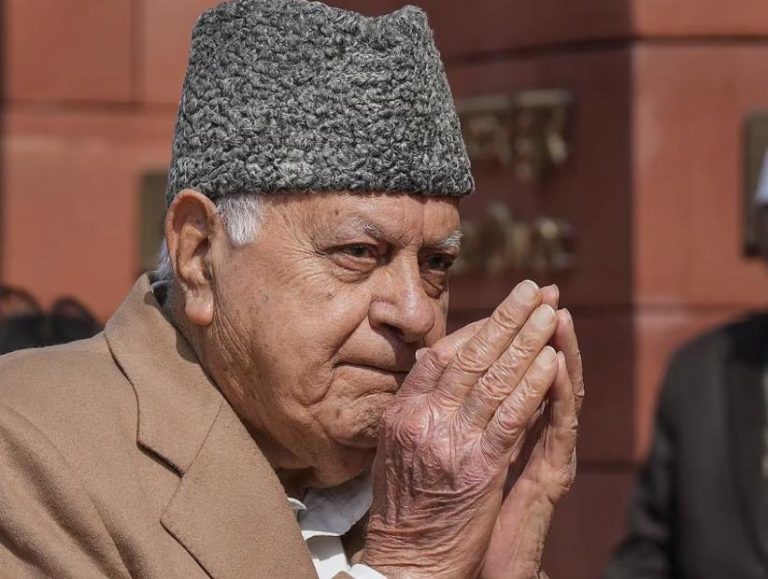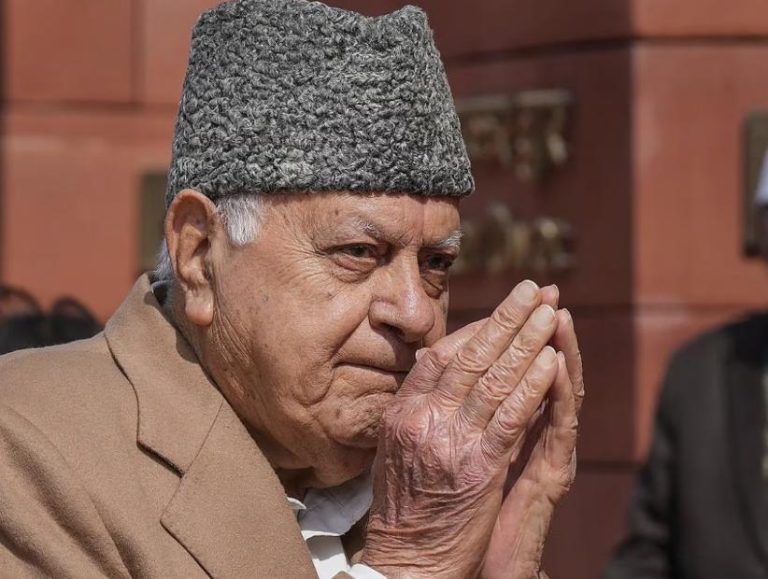
Jammu & Kashmir Assembly adjourned amid uproar over Waqf Act
The Jammu and Kashmir Assembly witnessed a tumultuous scene on Monday after Speaker Abdul Rahim Rather denied an adjournment motion on the Waqf Act, prompting the House to be adjourned. The controversy surrounding the Waqf Act has been brewing for some time, with various political parties having differing opinions on the matter.
The National Conference (NC) MLAs had moved a motion to adjourn the Question Hour to discuss the Waqf Act, citing concerns over its implementation and the alleged attempts to alter the demographics of the region. However, their efforts were thwarted by the Speaker, who refused to grant the adjournment motion.
In response, the NC MLAs staged a walkout from the House, protesting the Speaker’s decision. The BJP, which has been a vocal critic of the Waqf Act, also joined in the protests, demanding that the Question Hour be held as scheduled. The drama unfolded in the Assembly, with both sides refusing to back down.
The Waqf Act, which was passed by the previous government in 2019, has been a subject of controversy since its inception. The Act aims to regulate and manage the Waqf properties, which are endowments for religious and charitable purposes. However, the opposition parties have accused the government of using the Act to alter the demographics of the region by favoring one community over another.
The NC has been at the forefront of the opposition against the Waqf Act, with its leaders claiming that the Act is designed to benefit a particular community. The party has been demanding that the Act be repealed and that a new law be framed that ensures the Waqf properties are managed in a transparent and inclusive manner.
The BJP, on the other hand, has been supporting the Waqf Act, claiming that it is necessary to protect the rights of the Waqf properties. The party has accused the NC of trying to stall the implementation of the Act and has demanded that the Question Hour be held to discuss the matter.
The controversy surrounding the Waqf Act has created a rift among the political parties in the state. The NC and the BJP have been engaged in a bitter war of words, with both sides refusing to back down.
The Speaker’s decision to deny the adjournment motion has been widely criticized by the opposition parties. The NC has accused the Speaker of being biased and of trying to suppress the voices of the opposition.
“This is a clear attempt to quell the voices of the opposition,” said a NC leader. “The Speaker is trying to protect the government’s interests and is not willing to listen to the concerns of the people.”
The BJP, on the other hand, has accused the NC of trying to create a controversy where none exists.
“There is no controversy over the Waqf Act,” said a BJP leader. “The Act is necessary to protect the rights of the Waqf properties and the opposition is trying to stall its implementation.”
The controversy surrounding the Waqf Act is not new. The Act has been a subject of debate since its inception, with various political parties having differing opinions on the matter.
The Jammu and Kashmir government has been under pressure to address the concerns of the opposition parties over the Waqf Act. The government has been accused of not consulting the opposition parties before passing the Act and of not providing adequate information on its implementation.
The controversy surrounding the Waqf Act has also raised concerns about the future of the state’s Waqf properties. The Waqf properties are endowments for religious and charitable purposes and are managed by the Waqf Board.
The controversy surrounding the Waqf Act is a reminder of the deep-seated political and religious divisions in the state. The state has a complex political landscape, with various political parties and factions vying for power.
The controversy surrounding the Waqf Act is also a reminder of the need for greater transparency and accountability in the state’s governance. The state’s political leaders must work towards creating a more inclusive and transparent system of governance that takes into account the concerns of all sections of society.
In conclusion, the Jammu and Kashmir Assembly’s adjournment amid uproar over the Waqf Act is a clear indication of the deep-seated divisions in the state’s politics. The controversy surrounding the Waqf Act has raised concerns about the future of the state’s Waqf properties and has created a rift among the political parties.
It is imperative that the state’s political leaders work towards creating a more inclusive and transparent system of governance that takes into account the concerns of all sections of society. The controversy surrounding the Waqf Act is a reminder of the need for greater accountability and transparency in the state’s governance.





